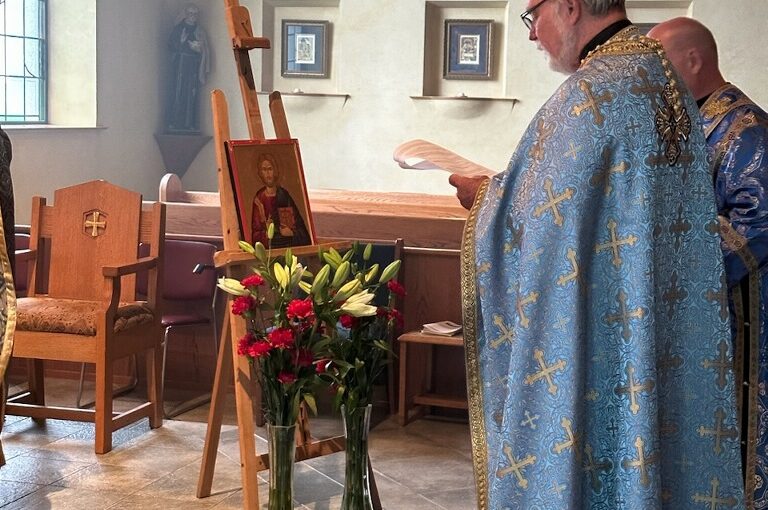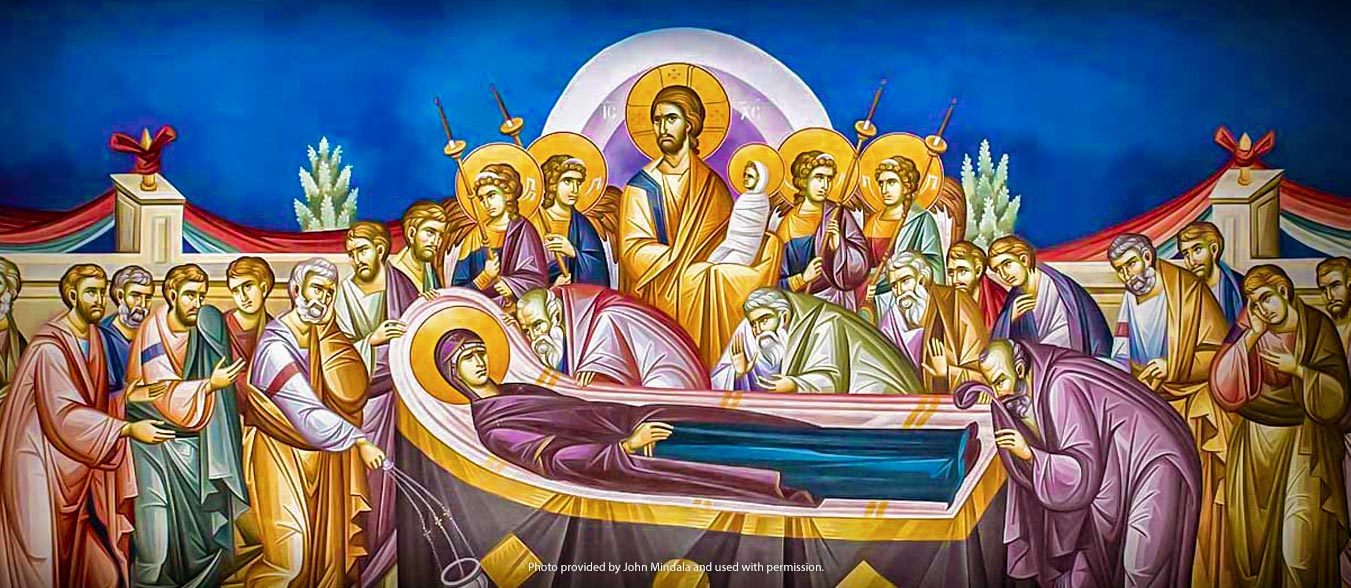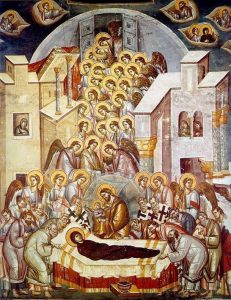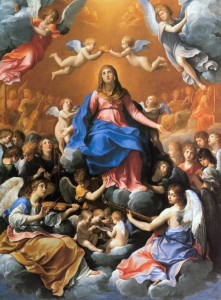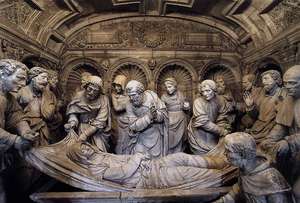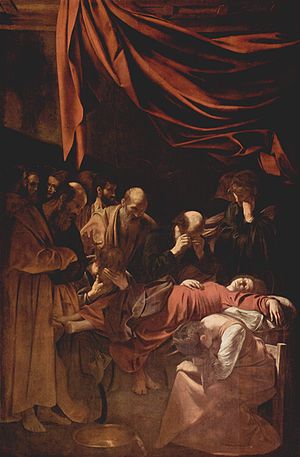The Blessing of Herbs and Flowers in Honor of the Assumption of the Blessed Virgin Mary
After the Asperges if it is a Sunday, otherwise immediately before Mass, the priest, standing before the altar and facing the people who hold the sheaves of new grain, garden vegetables, flowers and new herbs and the finest fruits of their orchards in their hands, says in a clear voice:
P: Our help is in the name of the Lord.
All: Who made heaven and earth.
Pray Psalm 64
P: Glory be to the Father.
All: As it was in the beginning.
P: The Lord will be gracious.
All: And our land will bring forth its fruit.
P: You water the mountains from the clouds.
All: The earth is replenished from your rains.
P: Giving grass for cattle.
All: And plants for the benefit of man.
P: You bring wheat from the earth.
All: And wine to cheer man’s heart.
P: Oil to make his face lustrous.
All: And bread to strengthen his heart.
P: He utters a command and heals their suffering.
All: And snatches them from distressing want.
P: O Lord, hear my prayer.
All: And let my cry come unto you.
P: The Lord be with you.
All: And with your spirit.
Let us pray.
Almighty everlasting God, who by your word alone brought into being the
 heavens, earth, sea, things seen and things unseen, and garnished the earth with plants and trees for the use of man and beast; who appointed each species to bring forth fruit in its kind, not only for the food of living creatures, but for the healing of sick bodies as well; with mind and word we urgently call on you in your great kindness to bless + these various herbs and fruits, thus increasing their natural powers with the newly given grace of your blessing. May they keep away disease and adversity from men and beasts who use them in your name; through Christ our Lord.
heavens, earth, sea, things seen and things unseen, and garnished the earth with plants and trees for the use of man and beast; who appointed each species to bring forth fruit in its kind, not only for the food of living creatures, but for the healing of sick bodies as well; with mind and word we urgently call on you in your great kindness to bless + these various herbs and fruits, thus increasing their natural powers with the newly given grace of your blessing. May they keep away disease and adversity from men and beasts who use them in your name; through Christ our Lord.
All: Amen.
Let us pray. God, who through Moses, your servant, directed the children of Israel to carry their sheaves of new grain to the priests for a blessing, to pluck the finest fruits of the orchard, and to make merry before you, the Lord their God; hear our supplications, and shower blessings + in abundance upon us and upon these bundles of new grain, new herbs, and this assortment of produce which we gratefully present to you on this festival, blessing + them in your name. Grant that men, cattle, flocks, and beasts of burden find in them a remedy against sickness, pestilence, sores, injuries, spells, against the fangs of serpents or poisonous creatures. May these blessed objects be a protection against
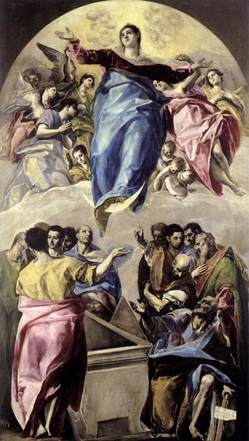 diabolical mockery, cunning, and deception wherever they are kept, carried, or otherwise used. Lastly, through the merits of the blessed Virgin Mary, whose Assumption we are celebrating, may we all, laden with the sheaves of good works, deserve to be taken up to heaven; through Christ our Lord.
diabolical mockery, cunning, and deception wherever they are kept, carried, or otherwise used. Lastly, through the merits of the blessed Virgin Mary, whose Assumption we are celebrating, may we all, laden with the sheaves of good works, deserve to be taken up to heaven; through Christ our Lord.
All: Amen.
Let us pray. God, who on this day raised up to highest heaven the rod of Jesse, the Mother of your Son, our Lord Jesus Christ, that by her prayers and patronage you might communicate to our mortal nature the fruit of her womb, your very Son; we humbly implore you to help us use these fruits of the soil for our temporal and everlasting welfare, aided by the power of your Son and the prayers of His glorious Mother; through Christ our Lord. All: Amen.
And may the blessing of almighty God, Father, Son, + and Holy Spirit, come upon these creatures and remain always.
All: Amen.
They are sprinkled with holy water and incensed.
